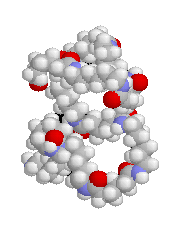High-Performance Polymers: Advanced Products for Sector
High-Performance Polymers: Advanced Products for Sector
Blog Article
Discovering the Varied Applications and Benefits of Polymers in Different Industries
Polymers, with their diverse series of homes and capabilities, have become important in numerous industries, each reaping distinct take advantage of their application. Polymers. From improving safety and performance in the vehicle sector to reinventing medical tools in the medical care industry, polymers play a pivotal duty. Moreover, their environment-friendly nature is altering the landscape of sustainability techniques. As we dig into the midsts of polymers in electronic devices, we discover sophisticated advancements, while their architectural integrity changes the world of building and facilities. The prevalent influence of polymers throughout markets is a testament to their versatility and flexibility, shaping the future of countless fields.
Automotive Market Applications
Polymers play a critical duty in enhancing the efficiency and resilience of numerous components within the vehicle sector. These flexible products are extensively used in the production of various parts, ranging from interior components to under-the-hood applications. One noticeable use polymers in the auto industry is in the manufacturing of light-weight parts. By replacing typical metal parts with polymer-based options, vehicles can attain improved fuel effectiveness without jeopardizing on toughness or security.

Medical Care Sector Benefits
In numerous medical care applications, the advantages of utilizing polymers are widely acknowledged for their varied series of beneficial buildings. Polymers play a vital duty in the medical care sector due to their flexibility, biocompatibility, and cost-effectiveness. One of the main advantages of polymers in healthcare is their ability to be customized to certain demands, such as adaptability, resilience, and biodegradability, making them optimal for a broad variety of clinical applications.
Polymer-based products are thoroughly made use of in clinical devices, such as catheters, implants, prosthetics, and medication distribution systems, as a result of their biocompatibility and capability to imitate natural cells. These materials can reduce the threat of allergies or beings rejected, enhancing individual security and outcomes. In addition, polymers are light-weight, making them suitable for wearable clinical tools and making certain individual comfort.
In addition, polymers enable the growth of innovative therapy methods, such as hydrogels for cells design and nanocomposites for targeted medication distribution. Their ease of handling and sterilization makes them crucial for maintaining high requirements of health in healthcare setups. Overall, the diverse benefits of polymers add substantially to innovations in medical innovation and person care.
Environmental Advantages of Polymers

Furthermore, polymers can contribute to energy savings because of their lightweight nature. In markets such as transport, lightweight polymer products can assist minimize gas intake and greenhouse gas exhausts. In addition, polymers can make it possible for the development of energy-efficient items such as insulation products that boost power preservation in structures.
In addition, polymers play a crucial role in reducing water pollution. For site link instance, using polymer-based filtration systems can effectively get rid of toxins and impurities from wastewater, securing water sources and ecosystems. On the whole, the ecological benefits of polymers make them important assets in advertising sustainability and environment-friendly techniques throughout numerous markets.
Polymers in Electronics and Technology
Considering the boosting demand for innovative and lasting services in modern markets, the integration of innovative polymer innovations in the realm of electronic devices and technology has actually emerged as a pivotal approach for driving efficiency and efficiency. Polymers have changed the electronics sector by allowing the manufacturing of lighter, a lot more flexible, and long a knockout post lasting electronic gadgets. From smart devices to clinical tools, polymers play an important duty in improving item design and capability.
One significant benefit of polymers in electronic devices is their insulating homes, which aid shield delicate digital components from environmental factors and electric disturbance. Furthermore, polymers are crucial in the advancement of versatile screens, wearable innovation, and published electronic devices, providing countless opportunities for producing clever and interconnected devices.
Moreover, the usage of polymers in electronic packaging has brought about advancements in miniaturization and thermal administration, enhancing the total efficiency and reliability of electronic systems. As technology continues to progress, the versatility and versatility of polymers will definitely drive further development in the electronics industry, shaping the future of technology.
Function of Polymers in Building and Facilities
The combination of sophisticated polymer products in building and facilities jobs has actually reinvented the method structures are developed and developed in contemporary times. Polymers provide various advantages in the construction industry as a result of their convenience, durability, and cost-effectiveness. One key role of polymers in building and construction is their usage in finishes and sealers, supplying security against environmental variables such as dampness, UV radiation, and deterioration. Furthermore, polymers are used in the manufacturing of lightweight and high-strength composite products, improving the structural integrity of buildings while lowering total weight.
In addition, polymers play an important role in sustainable building techniques by making it possible for the development of energy-efficient structures. Shielding products made from polymers assist control indoor temperatures, reducing the demand for home heating and cooling systems and eventually reducing power usage. In addition, making use of polymer-based compounds in infrastructure tasks such as bridges and roads improves their long life and decreases upkeep prices. Overall, the incorporation of polymers in visit their website building and construction and infrastructure showcases their considerable effect on modern engineering techniques.
Verdict
In verdict, polymers play a vital duty in various industries such as automotive, healthcare, environmental, electronics, and construction. Their versatile residential or commercial properties make them important in creating innovative services and products. From improving gas performance in lorries to boosting clinical gadgets, polymers use many advantages. Additionally, their influence on reducing waste and advertising sustainability highlights their relevance in modern-day applications. The extensive use polymers demonstrates their significant payment to progressing innovation and improving quality of life.
Report this page